
Student Politics in Nepal: Challenges, Relevance, and Future Prospects
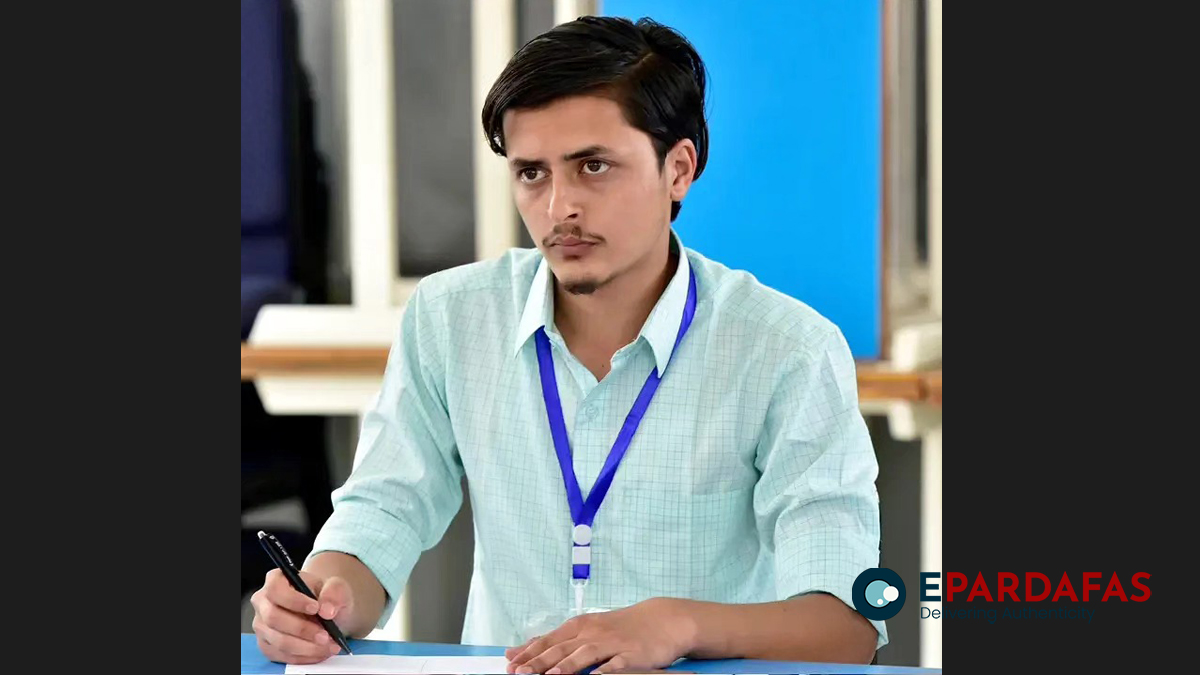
Student politics, an integral part of Nepali history through various eras, is currently grappling with significant challenges to its existence. In today’s context, the student movement must demonstrate its value to Nepali society, which now judges it based on present accomplishments rather than past contributions and legacies. It is also a beautiful aspect of democracy that any movement and force should get moral approval from the society from time to time.
The only policy that is necessary for students to obtain moral approval from Nepali society through politics is: ‘effective rejuvenation’. In broader terms, student politics encompasses the activities, advocacy, and political involvement undertaken by students. A collection of like-minded students engaged in student politics is referred to as a student organization. It is evident that student politics and organizations have been instrumental in driving significant revolutions and transformations from historical times to the contemporary world.
Examining global history, from the defeat of the autocratic Perun regime in Argentina in 1995 to the Velvet Revolution in Czechoslovakia in 1989, student politics has played a pivotal role in leading peaceful movements. In numerous countries across the world, students have played an unparalleled role in shaping pivotal revolutions and decisive movements.
Turning to Nepal’s context, the formal initiation of the student movement dates back to 1947 AD (BS 2004) when the Jayatu Sanskritam movement declared a revolutionary stance against the Rana regime. The student movement of 2036 BS compelled the autocratic monarchy to hold a significant referendum, with the Nepal Students Union (NSU) leading the charge. Additionally, student politics played a crucial role in the mass movement of 2047/2063 BS.
Despite the glorious history of student politics in Nepal, its existence is now subject to debates. Emerging political entities have chosen not to establish student organizations, and recently, the mayor of Kathmandu Metropolitan City raised questions about the rationale behind student organizations. Various factors underlie these inquiries into the existence of student politics.
When evaluating these concerns, it is essential to determine their alignment with the provisions of the constitution. Article 16, Clause 2(a) guarantees the freedom of thought and expression, while Clause (d) ensures the freedom to establish associations and organizations. Consequently, every student possesses the fundamental right to establish a student union and engage in political activities.
However, constitutional protection alone does not grant us the liberty to maintain the status quo. Preserving the existence of student politics and reinstating its erstwhile reputation demands a thorough examination of the issues raised. Five primary reasons can be identified for the questioning of student politics and movements. These reasons include:
1) The Traditional Style of Student Activism
During the period of the autocratic panchayat system in Nepal, political parties were prohibited. However, student organizations were allowed to operate under this regime, garnering support from both students and sympathetic political factions. Due to the prevailing autocracy during that era, the restoration of democracy could not solely rely on peaceful and orderly protests. Furthermore, even when protests were intended to be peaceful, the government at the time often responded with force, leading to the escalation of student-led demonstrations into chaos. An illustrative instance of this is the student movement of 2036. The extended duration of autocratic governance and rulership deprived students from experiencing a peaceful political atmosphere conducive to their growth and development.
Consequently, a belief became ingrained that student participation in political activities and activism should inherently display a sense of chaos or tumult. Historically, movements spearheaded by student organizations tended to veer towards disorderliness. Instances included shutdowns, acts of vandalism, blockades, and even processions with a confrontational tone. While there was a phase when these methods were deemed necessary, the acquisition of a republican constitution renders the utilization of such traditional approaches unnecessary and legally inappropriate.
2) Increasing crime in the name of politics
Another significant factor prompting skepticism about the validity of Nepali student politics is the surge in criminal actions carried out in the name of politics, using student organizations as a façade. In recent years, incidents such as the assaults on the campus leader of Trichandra Campus and professors from Tribhuvan University, all purportedly tied to student organizations, have cast doubt on the credibility of these student groups, further exacerbating the situation.
Beyond these incidents, there’s a range of criminal behavior taking place, spanning from soliciting donations from private colleges to engaging in violent confrontations. These unlawful activities have firmly implanted the notion in the public’s mind that student politics is inherently associated with such negative actions. Despite these activities being explicitly categorized as criminal offenses under the existing legal framework, the legitimacy of student politics itself has become a subject of inquiry, bordering on being seen as synonymous with unscrupulous political conduct.
3) FSU Elections Delayed for an Extended Period
The Free Students’ Union (FSU) is a group that stands up for students’ rights and concerns, often referred to as a mini parliament. It’s a way for students to be involved in politics on campus. However, FSU elections were not held for a long time – a whole 14 years. This means that students in different campuses couldn’t had the chance to pick their representatives or take part in leadership through voting. As a result, student politics became inactive and the student movement became weak and has lost some of its strength.
4) Student organizations rely heavily on their Parent Party
In the context of student politics, these organizations always take on the role of opposition, regardless of whether their parent party is in power or not. This means they act as a check and balance within their own party, ensuring that internal democracy is maintained. However, in Nepal, student organizations have largely mirrored the positions and directions of their parent parties for an extended period. Their ability to choose leadership independently has been limited, resulting in them operating primarily under the guidance of the parent party. This close alignment has led to a loss of credibility and revolutionary spirit of student politics.
5) Not being able to raise timely student issues in a strong manner
Thanks to the endeavors of student organizations, students have been able to secure affordable education within Nepal’s government-run institutions. This achievement stands as a noteworthy success story in the realm of student activism. However, one of the most significant issues that students are grappling with today is the deterioration of the education system, which has led to widespread unemployment. While student organizations occasionally mobilize to advocate for education reform, their efforts have not yet culminated in a robust and definitive movement. As a result, a large number of students find themselves stuck in lengthy queues at the passport office, NOC office, and airport.
In the present context, it is imperative for student organizations to forcefully address the issue of educational quality. They should amplify their voices to demand employment opportunities and essential services from the government. Student politics ought to embrace these legitimate concerns that have been marginalized in our rapidly evolving times.
These and similar factors have led to the current crisis within the student movement.
So, now we come to the question: Do we really need student politics?
Although student politics and organizations are portrayed as a problem, if we take a closer look, student organizations are not a problem, but the distortions prevalent in them are a problem. If the argument that student organizations should be abolished because of distortions is advanced, neither the society is free from distortions, nor the parties, nor the courts, nor other organs of the state. Putting an end to student politics and movements won’t magically resolve all the challenges present in the education system. To revive and improve the credibility and relevance of student politics, a revival is essential. Despite the numerous problems and shortcomings within student politics and groups, there are several valid reasons that support their existence. For instances:
1) Flawed Education System
The education system in Nepal is outdated, not practical, and costly. While new universities are emerging, the oldest one, Tribhuvan University, seems to have become a symbol of inefficiency. There are cases of delayed exams and results even after 15 months of starting the courses. University staff sometimes behave rudely, and obtaining educational certificates can be needlessly troublesome. Even though the constitution states that education should be free, there are instances of students resorting to suicide because they can’t afford school or college fees.
Student organizations have been warning against these issues and the arbitrary fee hikes by educational institutions. They’re needed to take these concerns and turn them into a strong movement to improve the education system.
2) Fostering Student Leadership
Throughout Nepal’s history, many prominent leaders first entered politics through student movements and organizations. Student politics serves as a pathway to acquainting students with politics and engaging them in the process.
Without this avenue, the number of individuals proclaiming “I dislike politics” could rise, and the involvement of youth in politics might dwindle. Research has shown that former student leaders often possess more experience and leadership skills compared to their counterparts.
3) Introducing Fresh Societal Ideas
Students represent the new generation of the country. Their perspectives on society and prevailing issues often differ from those of the older generation. Politics provides an effective platform for conveying these novel ideas. In the absence of student politics, those new ideas cannot come to the society.
4) Expanded Scope of Student Affairs
In the past, the focus was on the right to education; today, it’s about ensuring education quality. While previously aimed at critiquing governance systems, current concerns encompass government processes, representation, and more. Student politics isn’t confined to the campus; it engages with national issues, earning it the title of “permanent opposition.” Its scope now covers not only essentials but also accessible and practical education, fair competitive exams, women’s rights and equality, supportive colleges, and destigmatizing menstruation.
What used to be a discussion around gender discrimination has evolved to include gender minorities equally. Employment rights have progressed from basic opportunities to skill-based work, fair wages, internships, and apprenticeships.
5)Encouraging students to be responsible citizens
Research involving classroom observations, student and teacher interviews, and a survey of over 300 students shows that students who engage in political activities tend to participate more in civic activities and feel a stronger sense of civic responsibility. Another study conducted by a University of Florida professor and a student involving over 2,000 students across nine community colleges found that taking a political science course increased the likelihood of students voting, understanding the voting process, and grasping the concept of checks and balances in the constitution.
At a time when the sentiment of ‘I dislike politics’ is not uncommon, student politics plays a significant role in motivating students to take up civic responsibilities.
The main question now is: Are student unions serious about revitalizing student politics or not?
From their recent actions, it is evident that student wings are making changes in their approach. They played a crucial role in conducting the long-delayed FSU elections.
On July 14, the Nepal Students’ Union advised FSU presidents, campuses, and district committees across the country not to impose campus lockdowns. A few days later, on July 17, the Nepal Student Union, All Nepal National Independent Students’ Union (Revolutionary), ANNFSU close to Unified Socialist, and other student unions collectively assured the Minister of Education that they will refrain from locking down any campuses or universities from now on. Similarly, the student wing ANNFSU close to UML also issued a statement on July 25, expressing its commitment not to lock down campuses.
More recently, on July 31, the central president of the Nepal Student Union, Dujang Sherpa, suspended student leaders involved in abusing the chairman of the Purbanchal University Service Commission. He instructed them to refrain from violent activities and urged them to protest creatively.
These recent steps by student organizations indicate efforts towards the rejuvenation of student politics.
However, to truly highlight the importance of student politics in the evolving political landscape, student unions should adopt the “learn, unlearn, and relearn” approach. This means learning new styles and staying up-to-date with relevant issues, abandoning outdated approaches, and preserving the positive aspects of student politics from the past. With the growing ambition for change in the country, student politics can play a pivotal role in improving education and curbing migration abroad. A well-functioning education system can produce skilled individuals in various fields, fulfilling the country’s needs. Additionally, student politics can nurture qualified leaders who can guide the nation.
Hence, there is no alternative to an effective renaissance in student politics. It is essential for shaping a better future for both the students and the country as a whole.
(Binod Raj Joshi is a student of Political Science and Law. He also holds the esteemed position of a central member within the Nepal Students Union.)



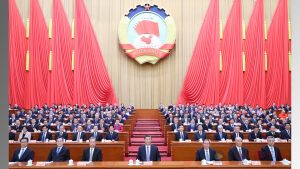
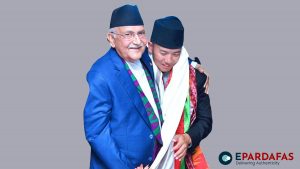

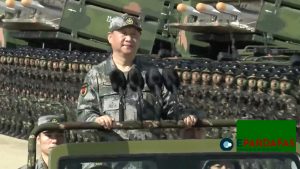






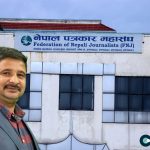

Comments